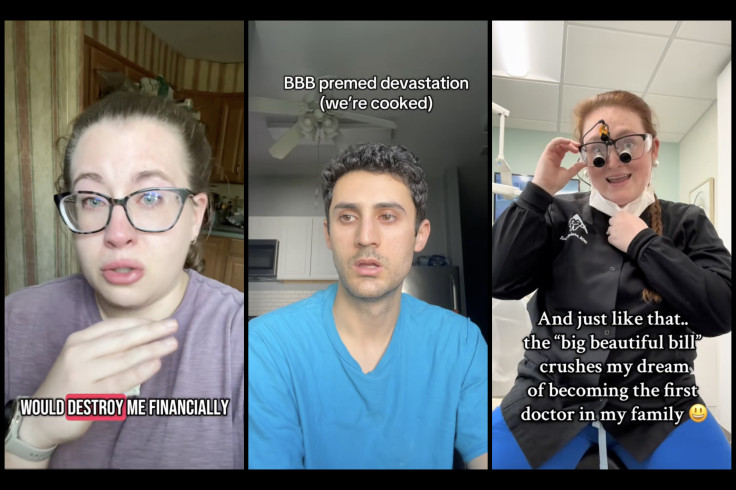
Medical students and pre-med hopefuls are raising alarm over one real-life implication of President Donald Trump's Big, Beautiful Bill: dramatic cuts to federal student loan programs that mean many prospective students can no longer afford to attend medical school.
Trump signed the sweeping "One Big, Beautiful Bill Act" on Friday, prompting outcry from students whose dreams of practicing medicine have been "squashed overnight."
Under the new law, students will see a lifetime cap of $200,000 on Federal Direct Unsubsidized Stafford Loans for professional school—well below the average cost of attending medical school. The bill also eliminates the Graduate PLUS loan program, previously a critical tool that allowed students to borrow enough to cover full tuition and living expenses.
The American Medical Association (AMA) argued against the legislation in a letter to the U.S. Senate, warning that caps placed on loan options for graduate and professional students will worsen an expected doctor shortage.
By 2037, the medical field is projected to short by at least 187,000 full-time physicians, according to data from the U.S. Health Resources & Services Administration.
"The cost of attending medical school was the number one reason why qualified applicants chose not to apply," the AMA wrote in its letter, noting that the median cost of graduating from a public in-state medical school is $286,454, and $390,848 at private universities. 71% of medical students graduate with more than $212,000 in debt.
Critics say the changes could push qualified candidates toward risky private loans with higher interest rates or force them to give up their medical careers entirely.
@kellieewelliee I'm not crying, you're crying 🥲 #bigbeautifulbill #firstgen #dentist ♬ Bejeweled - Taylor Swift
"Do you know what it's like to have your dream to become the first physician in your family become squashed overnight because of the government? It sucks," said TikTok user Lauren Steiner, who had been preparing to take the MCAT this summer but says that now she can't afford to apply.
@lauren_steiner__ The government just ended my ability to even apply to medical school, it's no longer an option because private student loans would lead to absolute financial ruin. All of my work for the past 5-8 years was for nothing now, there's just no way to make medical school a possibility. #medicine #medschool #physician #premed #premedlife #premedstudent #biomedicalscience #nutrition #graduateschool #professionalschool #studentloans #onebiguglybill #medicaltiktok #medicalschool #medical #bigdisasterousbill @Senator Cory Booker ♬ original sound - Lauren Steiner, MS
Another TikToker called the bill "a pretty terrible day in history" for aspiring doctors.
"How are we paying for medical school guys?" he asked. "Anybody just have 445,000 just laying around by chance?"
Republican lawmakers who support the bill argue the measure reins in federal spending. Tim Walberg (R-MI) defended the legislation as protecting "Americans who never set foot on a college campus," from paying for "elite Ivy League degrees."
Whether Congress will revisit the cap amid backlash from students, medical associations, and hospitals—already strained by staffing shortages—remains to be seen.
AMA CEO Dr. James Madara urged lawmakers to consider immediate and longterm impacts on healthcare in the U.S. "The changes will severely limit the number of individuals that can afford a medical degree," he said. "And likely exacerbate the looming shortage of physicians."
© 2025 Latin Times. All rights reserved. Do not reproduce without permission.





